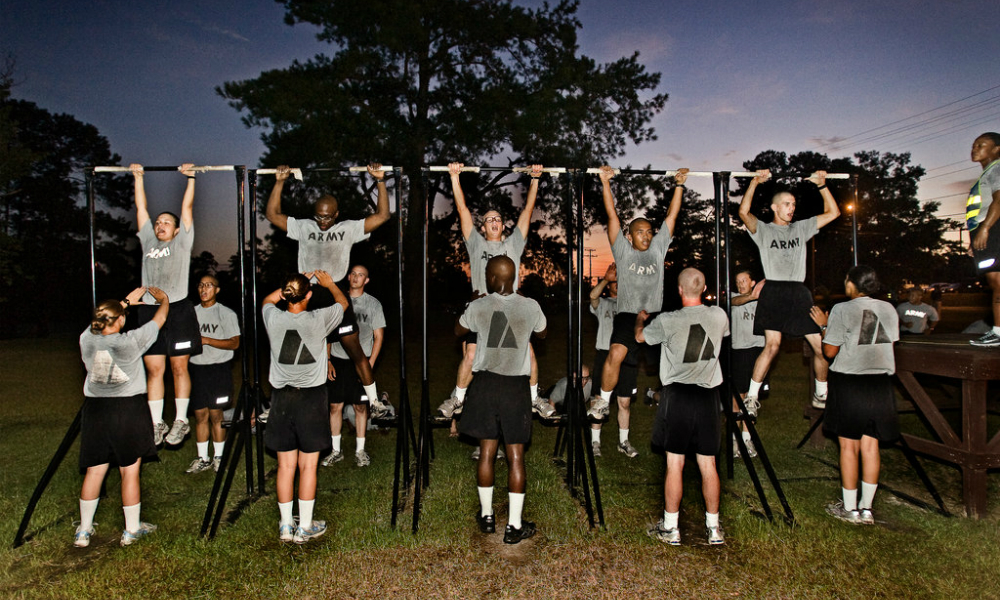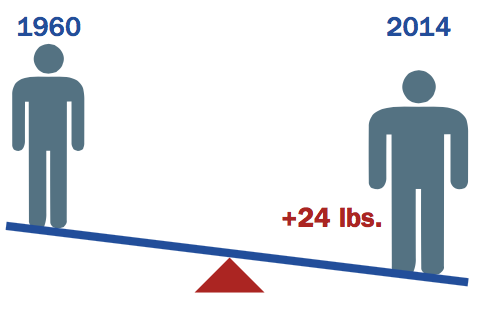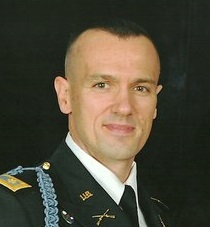I recently visited my home state in the Midwest. While out for lunch I was amazed that the number of overweight or obese people dwarfed those who appeared healthy. I wasn’t being judgmental, just an objective observation. I usually feel sad for the overweight children who have no choice over their decisions that lead to being unhealthy. But this time I was afraid for the safety of our nation.
As we enter the general election, the single biggest national security question our candidates should address is the future health of our country. They would be wise to take a note from the pages of President John F. Kennedy, who in 1960 while president-elect wrote a three-page article in Sports Illustrated titled “The Soft American” outlining the consistent decline in the health and fitness of the American population.
A veteran of World War II, Kennedy affirmed the connection between the health of each citizen to our collective security; that getting soft “can help to strip and destroy the vitality of a nation.” He fully believed the health of our citizenry was vital to our success as a nation. Our health is not only the key to America’s ready reserve for armed conflict but also the vitality of our intellectual, psychological, and emotional determination for future progress.
Kennedy would not be happy with where we’ve come as a country. Over the past 35 years, obesity rates have more than doubled. The average American is more than 24 pounds heavier today than in 1960.
A recent Center for Disease Control and Prevention (CDC) report shows that roughly 30 % of Americans over the age of 20 are obese. Compare that figure to 1997, when about one in five Americans was obese. It is not unreasonable to predict that without concerted action, over half of the American population will be obese in the near future.
The stakes are clear: The greatest national security emergency tied to our declining health is not having a population capable of defending our nation in a crisis. The Department of Defense estimates that 71 percent of the roughly 34 million 17- to 24-year-olds in the U.S. today would fail to qualify to serve in uniform based mostly on physical health disqualifications – obesity being the biggest. All signs show that this problem will only grow.
Moreover, the amount of time it will take to train and get recruits into shape will take longer. With every rising statistic we are betting national security against the amount of time it will take to field a fighting force that can defend the country.
I’ve served 23 years in the military. I often tell people that when I joined the Army at the age of seventeen I was re-raised. I had never ran more than a mile. I believed a dinner of candy bars and microwave meals was sufficient. The military not only had to teach me how to eat, exercise, and generally lead a healthy life but also had to build my body into fighting shape.
Since Kennedy, there have been no shortage of initiatives, presidential committees, and plans to improve American health. Most recently First Lady Michelle Obama has made it a priority to improve American nutrition policies. But the health, nutrition, and fitness problems we face persist on a societal level.
A half century ago, Kennedy wrote that leadership is needed to attack this constant decline stating “this is a national problem and requires national action.” He put his clear, simple and direct plan in print. He assigned Cabinet level responsibility, opened the door for state involvement, and most importantly established action items he would monitor.
Our widening waistlines are not just a public health issue, but also pose a potential national security emergency. The next president of the United States needs to take the issue out of the East Wing, place it back in the West Wing, and, like Kennedy, devote sufficient resources to tackle the problem. Our future ability to fight and win wars depends on it.




Dont these years and dollars of government ineffectiveness show that maybe it’s not the government that can make this change? There are cultural changes that need making and the DC social club probably won’t be able to make them spread.
Americans are a race of giants because of the health we enjoy and the food we receive. Problems is we are not just growing taller but much wider. Its a sad thing to see.
Our society is up in arms over allowing transgender members to serve; meanwhile, the vast majority of the population is either unwilling or unqualified (per current standards) to serve. I peraonally dont believe society will change; our choices are to adjust our standards (bad) or live with a drastically reduced military effectiveness (worse), or possibly/likely both…
A timely and well crafted article on this readiness crisis; see also:
http://cdn.missionreadiness.org/NATEE1109.pdf
The missing element in this discussion is time, which has been steadily disappearing. Increased minimum academic standards in high school, plus the liability associated with injuries have all but eliminated mandatory phys ed in high school. Community service and mandatory online classes — done after regular school hours — impose additional demands.
Move forward into the adult working world, and trends show Americans working longer and taking less time off…a paid benefit that itself is eroding. Couple that with the fact that most jobs have become less physically demanding, and it’s no surprise that everyone is a little wider than before.
Great short analysis. I would also ask if this might apply to other areas of fitness – namely our moral and spiritual fitness? I realize that it’s generally an area people avoid talking about, and it’s not considered PC, but there was a time when certain things deemed one to be “unfit” for service, but had nothing to do with one’s physicality. While some may refer to it as pragmatic, our focus on purely the physical aspect of fitness for service falls into the utilitarian ethical lens, to the neglect of addressing who our Soldiers are as human beings. As one of my former CSMs said a few years ago in addressing our brigade commander: “It’s not that they’re bad Soldiers, sir. It’s that they’re not fully-functioning human beings.” Full disclosure- I’m a former Infantryman who is now the pastor of Most Holy Trinity Catholic Chapel at West Point, so I have a vested interest in the total picture of health for our young people and future leaders.
Thanks Pastor. Sounds like a great follow up article to us!
Thank you for keeping this issue in the limelight. It reminded me of my days at the Naval War College several years ago when a classmate, a USMC O4, first learned that the USMC instituted remedial PT. The major was outraged at the thought of a Marine need remedial PT!
Your point that “the amount of time it will take to train and get recruits into shape will take longer,” is spot on. I’m certain the number of stress-related injuries during basic training is increasing, as it the number of separations from basic for PT failures and stress-related injuries. That’s tons of recruiting dollars down the tube, to boot.
Thank you again.
84-86 I was a Basic Training XO at Ft Jackson. Even back then the physical condition of recruits was pitiful. During female cycles by the end of the 22nd week we had a platoon of females with stress fractures with one or more sever stress fractures of everything from their heel to pelvic bones. Males faired better with about half the number. The physical fitness levels of each group was horrendous and probably the worst example was when I received 3 male recruits that couldn’t even support their own weight in the knees down female push up position. Its even worse now and the army doesn’t want to do anything about it.
A number of government policies more powerful than the Presidential Fitness Challenge are contributing to the obesity, especially subsidies on GMO corn that makes High Fructose Corn Syrup (essentially sugar) so cheap that is is used as a filler in processed foods. The prevalence of government-funded overabundance of sugar causes a number of problems including obesity, Type II Diabetes, and, occasionally, hyperactivity.
Hello ! i have served for 12 years in one of the hardest special forces of a european country…before that i was a semi pro cyclist on road&track..in my teens i was a track runner:400m 1500m10000 m competitor made it to a nationl record at age 17
After military i still walk several 50miles/80km events a year.
I look and am 30years younger than i am…in spring a doc from the company i work for …was amazed…about my heart cardio etc…i never saw enything like this ..he said ..you a fitter sronger than 20 /30year ATHLETES
yeap in NEVER smoked..i never goene out much ..because i hatet it …never used drugs…i lived a hard life for my sport&army… i eat no pork no chicken meat..only beef/lamb/venison/beef jerky .
HEDONISM makes creates mental&physsical WEAK PEOPLE.
the romans already knew:mens sana in copore sano….for hedonistic society=mens INSANA in copore INSANO….hedonism is slowly killing people because the only meaning in life for them=inhalung dirty smoke poiesening themselves-eating bad food -lazyness -disco bars entertainment-pkeasure adultery drinking to much drugs fucking …=live like lazy filthy pigs with no moral non uprightness non gials no .
They get eary old& sick …in need of a army of docters to help their rotten minds &bodies ..because of their filhty lazy pig like maeningless lives…they laughted a my bading in sweat..during my exercices…..NOW I LAUGH AT THOSE DIRTY LAZY idiots with their cigarettes drugs entertainment pleasure decradeted bodies&minds already dementia preacox at a early age…no mercy no sympathy…they did harm themselves…so this is wgat they get….